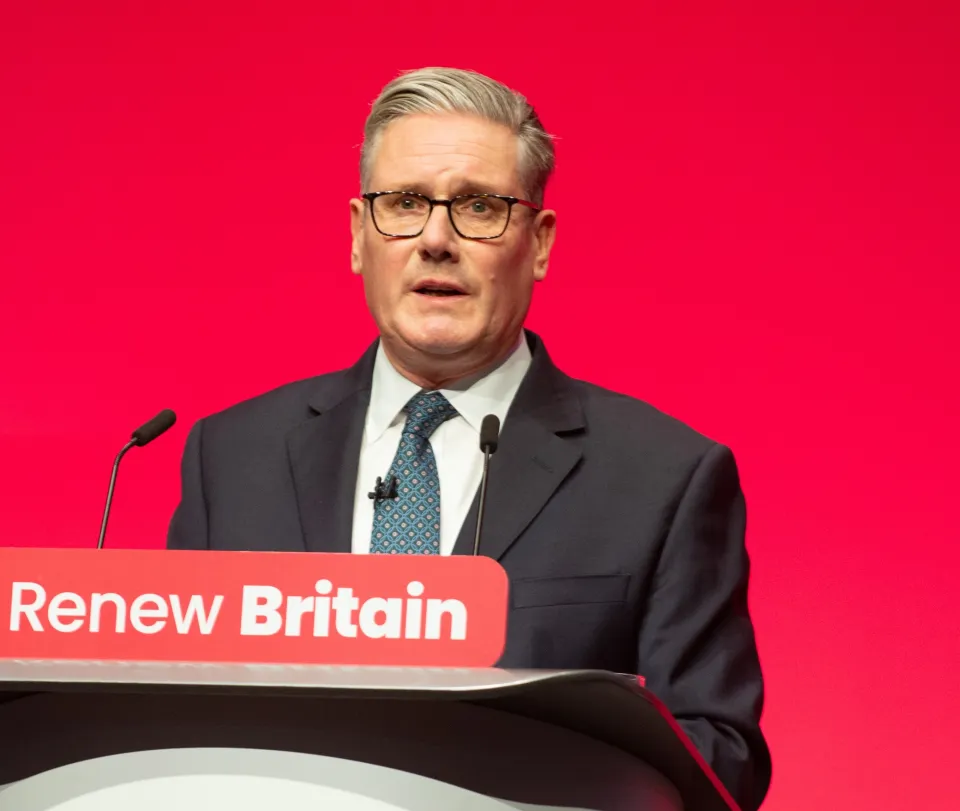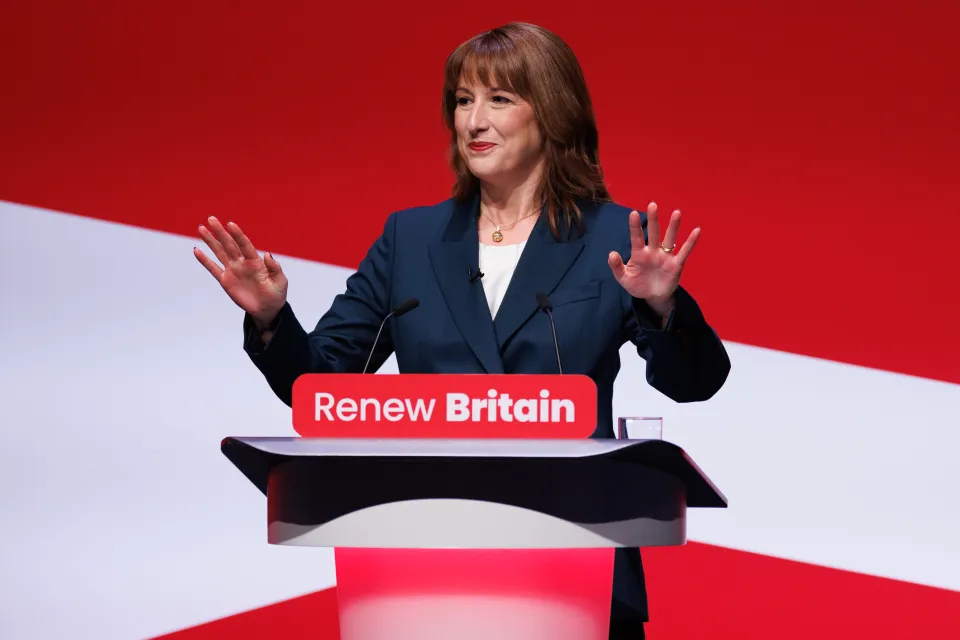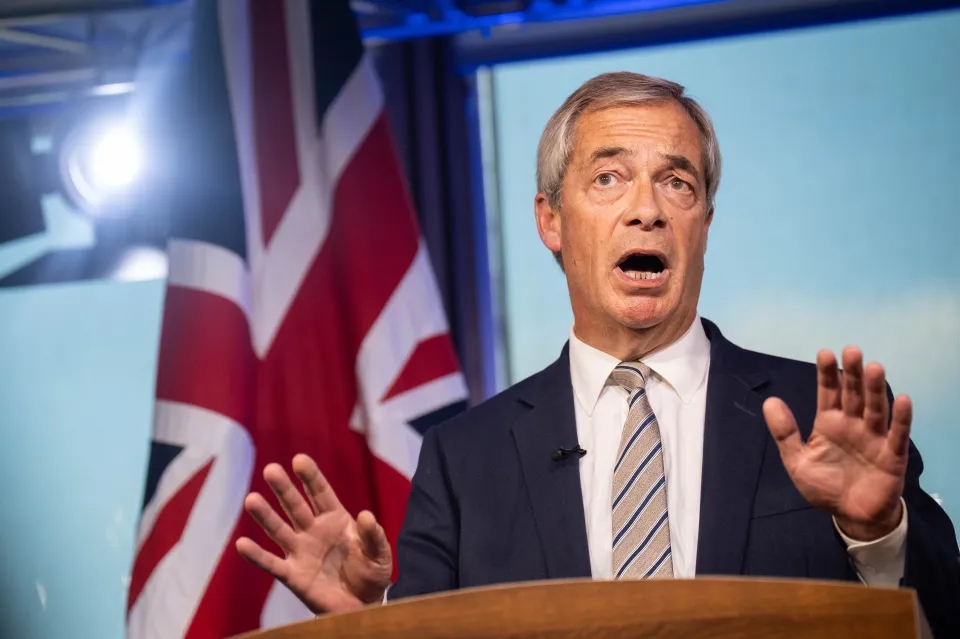UP here at the Tory Party conference in Manchester, comparisons between Kemi Badenoch and United’s Ruben Amorim write themselves.
Two gaffers tasked with getting a once-formidable colossus back to winning ways — and both finding that nothing they do seems to work.
Supporters who long for the glory days of old are solemn, and the dressing room is fast losing faith.
Both watch enviously as their gloating rivals in light blue continue to shine.
Both beg for more time.
After her bullish conference speech yesterday, Badenoch has bought herself that time.
It was well delivered and she hit the right notes on the economy, welfare, crime and immigration.
Her pledge to abolish stamp duty should also prick the ears of voters who until now have not been paying her attention.
As an exercise in corralling despondent Tory members and seeing off any immediate leadership threat, it’s job done, Kemi.
Back down to Earth
Much the same can be said of Sir Keir Starmer’s run out in Liverpool, where he successfully united his party against their common enemy, Nigel Farage.
He too delivered an address lapped up by his grassroots to the extent the prospect of impending mutiny melted away.
The North West has been kind to them both, and they appear stronger.
But the crashing thud of reality awaits them back in Westminster, where the mirage of the past fortnight will soon be shattered.
Party conferences are bubbles frozen in time, and it is easy to be suckered into believing a leader has played a blinder just because their own side cheers them to the rafters.
Both Badenoch and Starmer now need to come back down to Earth and confront some home truths.
The first is that Nigel Farage is still leading the polls by a mile, opening up a 12-point gap according to More In Common.
May’s local elections are almost certain to be bloody, with the party at risk of falling to a humiliating fourth in both Wales and Scotland.
Labour’s conference failed to make a dent, with the party registering “no change” in its position at 20 per cent compared to Reform’s 33 per cent.
If Badenoch also fails to make inroads, the same doubts over her leadership will come flooding back.
May’s local elections are almost certain to be bloody, with the party at risk of falling to a humiliating fourth in both Wales and Scotland.
Badenoch’s allies are setting expectations on the floor — but as one of her Shadow Cabinet tells me: “You can roll the pitch as much as you like, nothing prepares you for the pain until it actually hits.”
Mass losses would spark a fierce internal debate between those gunning for regicide and those who despair at the thought of the Tories killing off yet another leader.
One prominent donor has been telling friends that he will close his chequebook forever if Badenoch is toppled.
Whereas a Shadow Cabinet minister says: “If she’s not going to be Prime Minister, you might as well get rid of her now.”
Her main rival, Robert Jenrick, is sitting back, but king cobras also sit back before they strike.
While plotters are setting their watches for the May 1 polls, smart Tories are looking towards November 26 to mount a fightback.
The upcoming Budget on that date was barely mentioned in both Manchester and Liverpool, but it could turn the fortunes of all parties on their head.
Last year Chancellor Rachel Reeves claimed her £45billion tax raid was a one-off forced upon her by years of Tory economic recklessness.
Now she is coming back for more in a Budget that risks being even more toxic.
Bond markets have put the Chancellor in fiscal handcuffs, rightly stopping her borrowing even more money on the slate.
Labour MPs have put her in a political straitjacket by vowing to vote down any serious spending cuts, including to the eye-watering benefits bill.
Despite the chaos of Liz Truss, voters on YouGov’s tracker still view the Tories as the most trusted custodians of the public finances.
And growth is so puny that it will barely move the dial, all pointing to taxpayers being rinsed even further to make the sums add up.
Ms Reeves is privately furious with the Office for Budget Responsibility, whose decision to downgrade productivity leaves her with an even bigger black hole — in the region of £30billion.
Perhaps she regrets fawning quite so much over the economic watchdog when it was a thorn in the Tory side.
She is preparing to once again blame the Conservative record, but that is unlikely to wash for a second time, especially if she finds money to lift the two-child benefit cap to placate her own MPs.
A fight on the economy is fertile territory for Badenoch, who spent much of yesterday attacking this “high-tax, low-growth doom loop”.
Shock therapy
Despite the chaos of Liz Truss, voters on YouGov’s tracker still view the Tories as the most trusted custodians of the public finances.
Some at the top of the tree believe economic implosion is the shock therapy needed to get them back in the game.
One Tory Shadow Cabinet minister tells me: “People don’t yet realise how bad things are, but be in no doubt, we are flying into the mountainside. And when we crash, that is our chance to make our case to the country once again.”
Farage will of course give this short shrift, arguing he is not only reaping justified anger from years of immigration failure, but also decades of working people feeling no better off.
It is clear Badenoch still needs to go toe-to-toe on borders to have any hope of winning back voters.
But if a miserable Budget sees voters crying out for economic competence, the Tories might at last have their pitch.




